
The government has decided to make another attempt to bring traders to the tax net in the next month budget through a combination of administrative changes and lower tax rates for those who will electronically integrate with the tax machinery.
The plan also includes giving away Rs200 million worth of prizes every month in next fiscal year 2021-22 to encourage customers to buy goods from only those traders who are electronically integrated with the Federal Board of Revenue (FBR), according to sources in the Ministry of Finance.
Expanding the definition and scope of top-tier retailers would be one of the biggest initiatives of Finance Minister Shaukat Tarin to broaden the tax base, said sources in the Ministry of Finance.
Besides integrating online about 50,000 points of sales of retailers, the rationalisation of definition may also generate about Rs50 billion to Rs70 billion in additional taxes next year due to less underreporting of sales, said the sources.
The government discussed a proposal to reduce the minimum income tax from 1.5% to 1.25% only for tier-I retailers to encourage them to integrate with the FBR, said the sources.
Similarly, the withholding tax rate for distributors of fast moving consumer goods (FMCG) is also being discussed to reduce it to 0.25%.
Tier-I integrated retailers dealing in textile goods are already paying the reduced 12% general sales tax (GST). A proposal was also discussed to reduce the GST rate for non-textile retailers to 12%, but it might not be implemented due to tax refund-related complications, said the sources.
Subject to endorsement by the prime minister, the proposal will be officially unveiled along with the fourth budget of the PTI government. The budget is likely to be presented in the second week of June, said the sources.
The wholesale and retail sectors contribute about 19% to the national output, but their share in taxes is just 3.7% of the total collection.
The FBR gave a presentation to Tarin and the proposal was being refined in light of the discussion, said the finance ministry sources.
They said that the government may rationalise the definition of Tier-I retailers by setting a monetary threshold, as the existing definition provides loopholes that are being exploited to skip the tax net. However, these loopholes had been created as a result of October 2019 agreement reached between the traders and the government on the intervention of PTI stalwart Jahangir Khan Tareen.
Two major concessions had been given in 2019- doubling sales tax registration exemption limit for traders to Rs1.2 million annually in electricity bills and exempting a 1,000 square feet shop from the mandatory registration of Tier-I retailers.
The government was discussing Rs20 million to Rs100 million annual turnover monetary threshold for the mandatory online integration of the retailers through point of sales (POS). At Rs100 million threshold, the government would not be able to achieve much, as hardly 1,100 retailers were declaring annual turnover of over Rs100 million.
Rest were underreporting their sales, resulting into evasion of both income tax and sales tax. “There are 3.5 million to 4 million traders and only 392,000 are registered for tax purposes,” former finance minister Hafeez Shaikh had said.
One and a half years after compromising with the traders, today only around 4,000 retailers are registered with the FBR for sales tax purposes, said the sources.
Out of those, about 725 retailers have been integrated with tax system allowing real-time submission of tax invoices. The government wants to increase this number to 5,000 by June next year, which would allow increasing the POS to around 50,000. The sources said that Tarin also wanted that about 64,000 POS issued by four commercial banks for debt and credit cards purposes should also be integrated with the FBR.
The POS installation is a real-time invoicing system for documentation of sales being installed by large retail stores across Pakistan. The integration of retailers with the FBR’s online system has been dubbed as a big reform by the government of Prime Minister Imran Khan. But the reform has so far remained on paper with little progress on the ground.
Provisions for the mandatory integration of retailers were introduced in the Sales Tax Act 1990 through the Finance Act 2019, and proper rules were laid down.
The benefit of online integration of the traders was huge, said the sources. Only in case of 33 retailers who were registered during past one year, their sales and sales tax payments jumped by 72% and 69% respectively in March this year due to minimal chances of under declaring the sales, according to the FBR statistics.
There was a gradual increase in number of electronically integrated traders. In July last year, about 228 electronically integrated retailers had declared Rs16.5 billion worth of sales - a figure that has now jumped to Rs39 billion after the number of retailers increased to about 725.
Published in The Express Tribune, May 18th, 2021.
Like Business on Facebook, follow @TribuneBiz on Twitter to stay informed and join in the conversation.

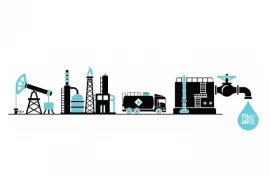
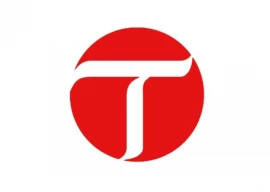
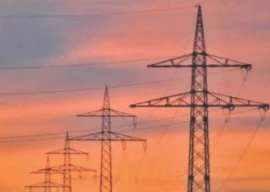
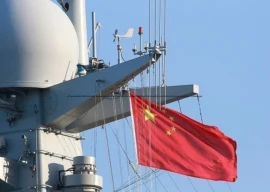

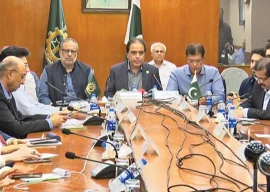


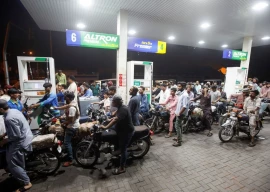


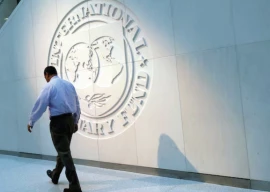






COMMENTS
Comments are moderated and generally will be posted if they are on-topic and not abusive.
For more information, please see our Comments FAQ